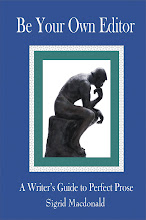Tips for Writers Honing Their Skills Later in Life
by Lisa Ramsay
We are often in awe of writers who find success when they are very young: after all, there’s something impressive about reaching the top of your game and finding literary success in your 20s, especially if this is achieved without support. We can all reel off a long list of award winning young things, but it’s much harder to list those writers who came to the art and found success later in life. However, there are many, and some of those might come as a surprise. There are many reasons writers choose to come to writing later in life: redundancy, empty nest, even overcoming a lifelong addiction of some kind.
Famous Late Bloomers
Donald Ray Pollock, author of 2011’s award winning novel The Devil All the Time, was the ripe age of 55 when this, his debut novel, garnered success. Pollock actually dropped out of school at the age of 17, and went to work in a meatpacking plant. He then worked at a paper mill for 32 years and it was only then he began his education, enrolling in Ohio University’s MFA program. He published a set of short stories the year before he graduated, when he was 55, and his award winning debut quickly followed. A similar tale is that of the more famous Raymond Chandler. Chandler didn’t decide to become a writer until he lost his job as an oil company executive when he was 44 years old. He published his first short story in 1933 and The Big Sleep, his most successful and debut novel, was published in 1939.
Another writer choosing to come to the craft later in life is Deborah Eisenberg, who decided to start writing whilst quitting her three packs a day smoking habit by going cold turkey. She went on to become one of the most amazing living short story writers when her first collection was published at the age of 41, and all because she had an addiction she wanted to quit! Writing is a great way to overcome an addiction, whether that be to cigarettes or alcohol, an illegal substance, an eating disorder, or all the above. When you are struggling with an addiction, you tend to be withdrawn and to focus inwards; however, writing forces you to focus your energy on looking outwards and to channel your emotions in a positive way. If you have a dual-diagnosis of eating disorder and addiction, then it's likely that you will have a multitude of difficult physical and emotional problems to process in order to begin healing, and start your recovery process: perhaps even more so than someone facing just one addiction to overcome. Dealing with difficult emotions is a great, and very common, reason that people choose to begin writing. It is a positive and productive way to deal with any hard or confusing times in your life.
Top Tips for New Writers
If you are, for whatever reason, thinking of coming to writing later in life, then here are some tips for taking up the craft and honing your skills as a serious writer:
Try Not to Procrastinate
Procrastination is part of the human condition. When you decide you want to write, you’ll suddenly find yourself fascinated with the temperature of your coffee, the color of your pen; anything to avoid actually poring yourself onto that piece of paper. Mary Heaton Vorse famously said that “The art of writing is the art of applying the seat of the pants to the seat of the chair.” And it’s true that if you want to write, the most important thing you can do is sit down and start writing, even if you have to edit out most of what you have written at the end of every day!
Read a Lot
Having told you not to procrastinate, I will now provide this next tip, which will seem odd: sit down and enjoy a good book. One that wasn’t written by you! Read everything you can get your hands on, and read as many different genres of literature as you can too. You can’t write well without reading: the two skills go hand in hand. Perhaps this is why writers who come to writing later in life find success so quickly: they are well read, they know what they like to read, and this makes writing a successful novel decisively a little easier.
Be Honest
If you’ve lived a long and varied life, and seen a lot of things you never expected to see, then why not incorporate this and embellish it in your writing? People love to sense honesty when they are reading: by writing about what you know, you can make the story you are trying to tell seem more real. And say the things that people think but that no one ever actually says. You’ll soon find that you have a novel that everyone will want to read!



No comments:
Post a Comment